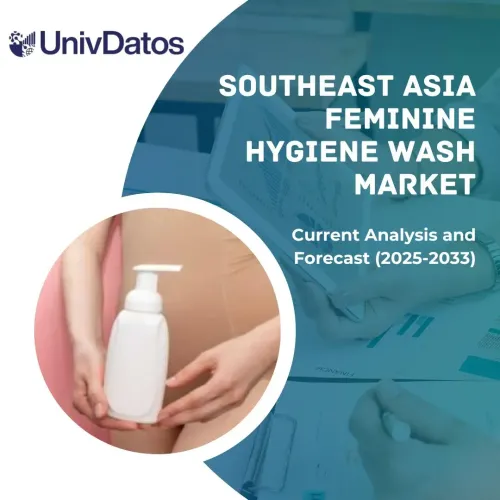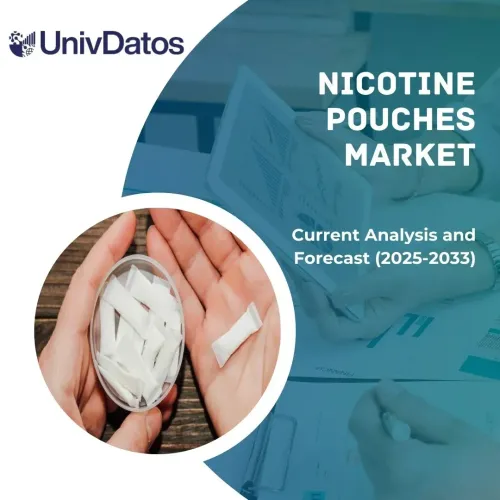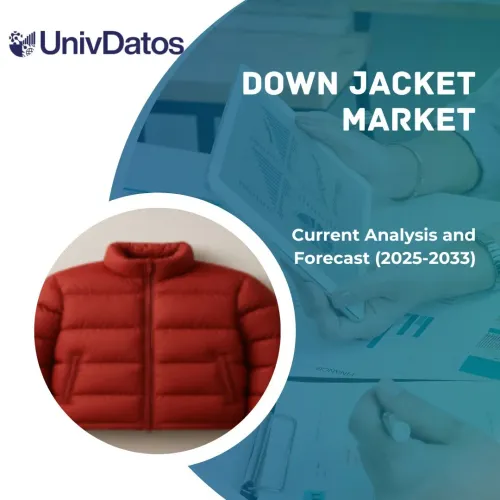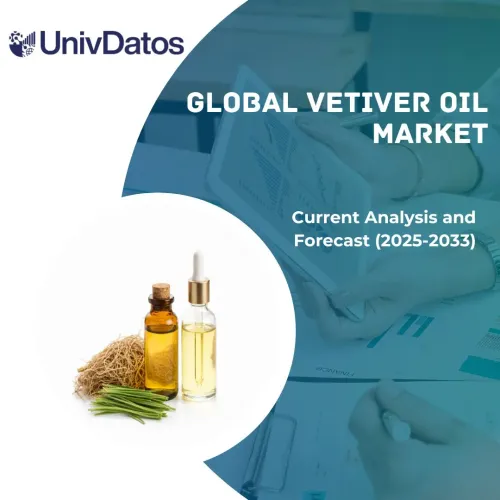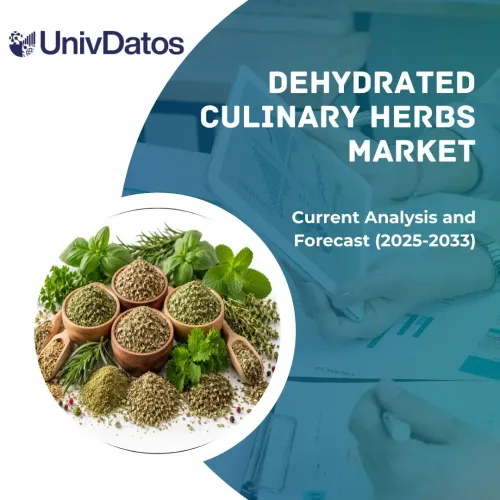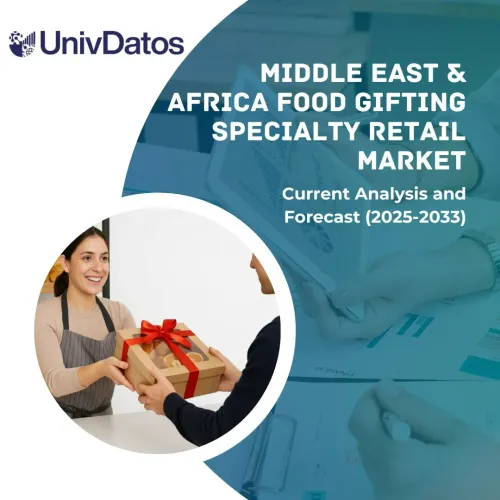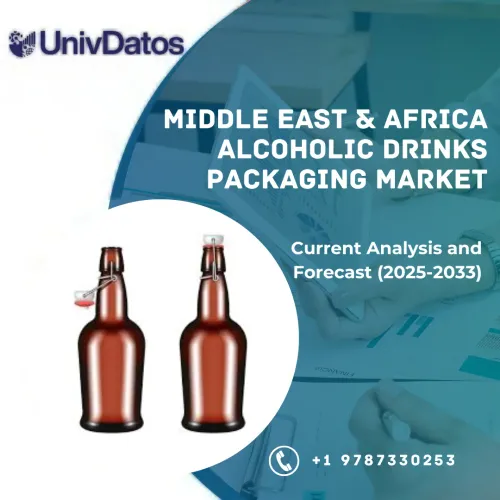- Home
- About Us
- Industry
- Services
- Reading
- Contact Us
Brazil HoReCa Market: Current Analysis and Forecast (2025-2033)
Emphasis By Category (Single Outlet and Chain Outlet), By Service Type (Hotels, Restaurants, and Catering), By Region (North Brazil, Northeast Brazil, Central-West Brazil, Southeast Brazil, and South Brazil)
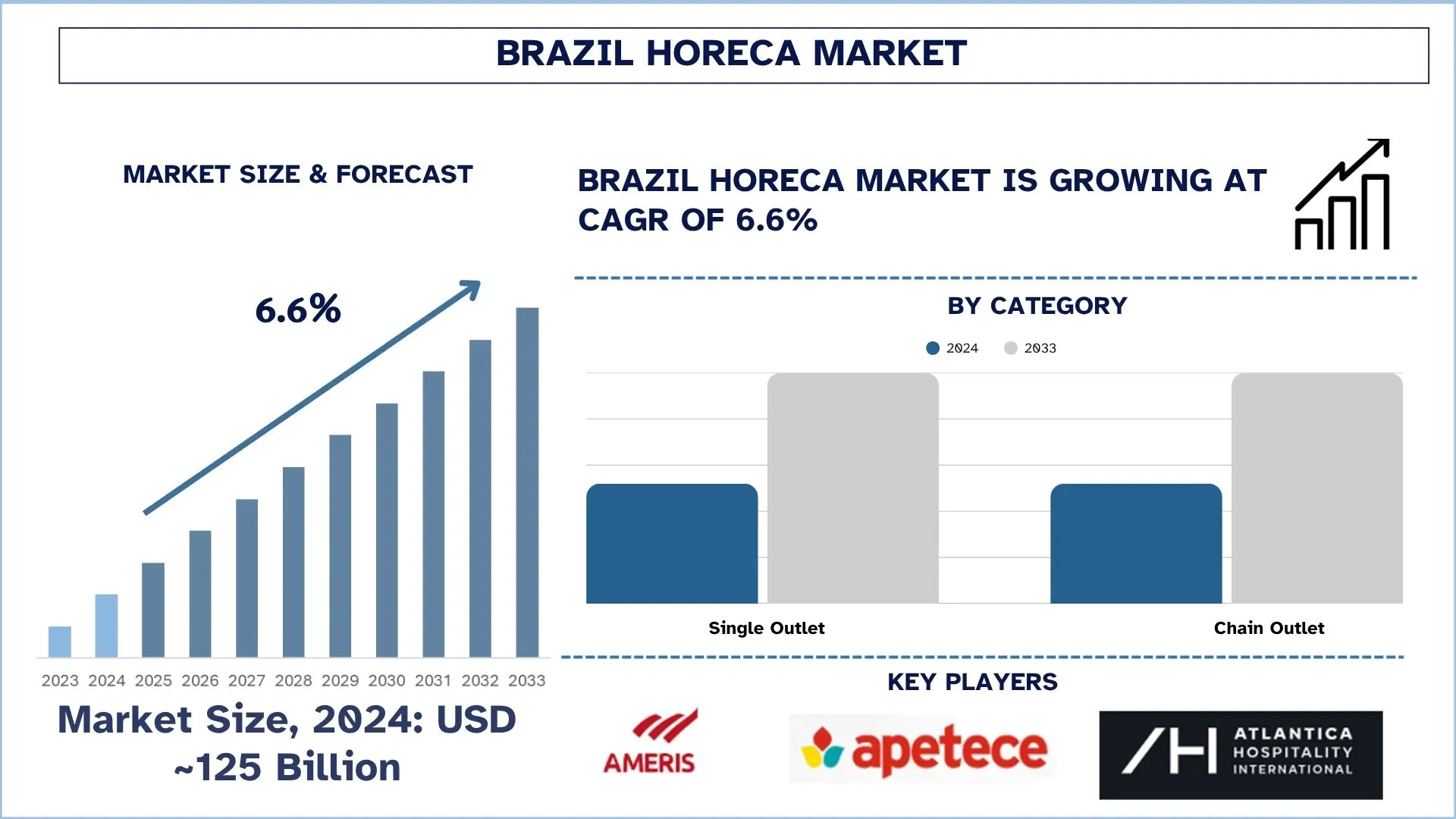
Brazil HoReCa Market Size & Forecast
The Brazilian HoReCa Market was valued at USD 125 billion in 2024 and is expected to grow at a strong CAGR of around 6.6% during the forecast period (2025-2033F), owing to the growing tourism and investment in hotels and restaurants across the country.
Brazil HoReCa Market Analysis
The Brazil HoReCa market is featuring high levels of growth due to the post-pandemic recovery of the domestic and international tourism market, growing urbanization, and shifts in consumer behavior in the direction of dining out and service-related services. The increase of the middle class, lifestyle shifts, and a rise in the desire to enjoy international food are driving the growth of the hospitality industry in large urban areas and tourism destinations. Such strong demand is supporting the need for modernized infrastructure and innovation in foodservice activity in Brazil.
Brazil HoReCa Market Trends
This section discusses the key market trends that are influencing the various segments of the Brazil HoReCa market, as found by our team of research experts.
Shift Towards Sustainable and Plant-Based Offerings:
The Brazilian HoReCa (Hotels, Restaurants, and Catering) market is experiencing a strong surge in demand for sustainable and vegan products, as consumers are increasingly concerned about healthier, more ethical, and ecologically friendly food options. Approximately one-third of consumers and foodservice operators are opting for plant-based alternatives due to heightened awareness of the environmental impact of meat production. This tendency is strengthened by the fact that the number of vegans and vegetarians in the country is increasing, and they demand various and inventive plant-based dishes.
The plant-based food industry is reacting by adding such foods to their menu, including plant-based meats, dairy-free snacks or products, and local foods. It is also about numerous organizations becoming sustainable, where waste of food is minimized, and the responsibilities of using the ingredients are sought. This also complies not only with consumer preferences but also with the other objectives of Brazil: environmental responsibility and food security.
Brazil HoReCa Industry Segmentation:
This section provides an analysis of the key trends in each segment of the Brazil HoReCa market report, along with forecasts at the country and regional levels for 2025-2033.
Single-Outlets Category has shown promising growth in the HoReCa Market.
Based on category, the market is segmented into single-outlet and chain-outlet. Of these single outlets, due to their sheer numbers, have held a sizeable market share in the Brazilian HoReCa market. These single outlets offer flexibility in operations, ease of handling, and easy customization, as well as the ability to offer services and menus, since their operations are limited in scope. Furthermore, single outlets often offer affordable services, which enables them to attract a wide number of price-conscious customers. However, with the expansion of chain outlets in the country and rising demand, the particular segment will increase its presence in the coming years.
Restaurant Category Dominates the Brazilian HoReCa Market.
The HoReCa market is classified according to type of service into Hotels, Restaurants, and Catering. Restaurants, among them, have always enjoyed the biggest market share. This has been pushed by the increasing urbanization, the evolving consumer lifestyles, and the escalating popularity of variety and convenience of food places. This has been supplemented by the introduction of quick services, casual dining, and food delivery services. Moreover, as the popularity of foreign cuisine and new food ideas is growing, restaurants have become one of the most important sources of revenue in the HoReCa industry.
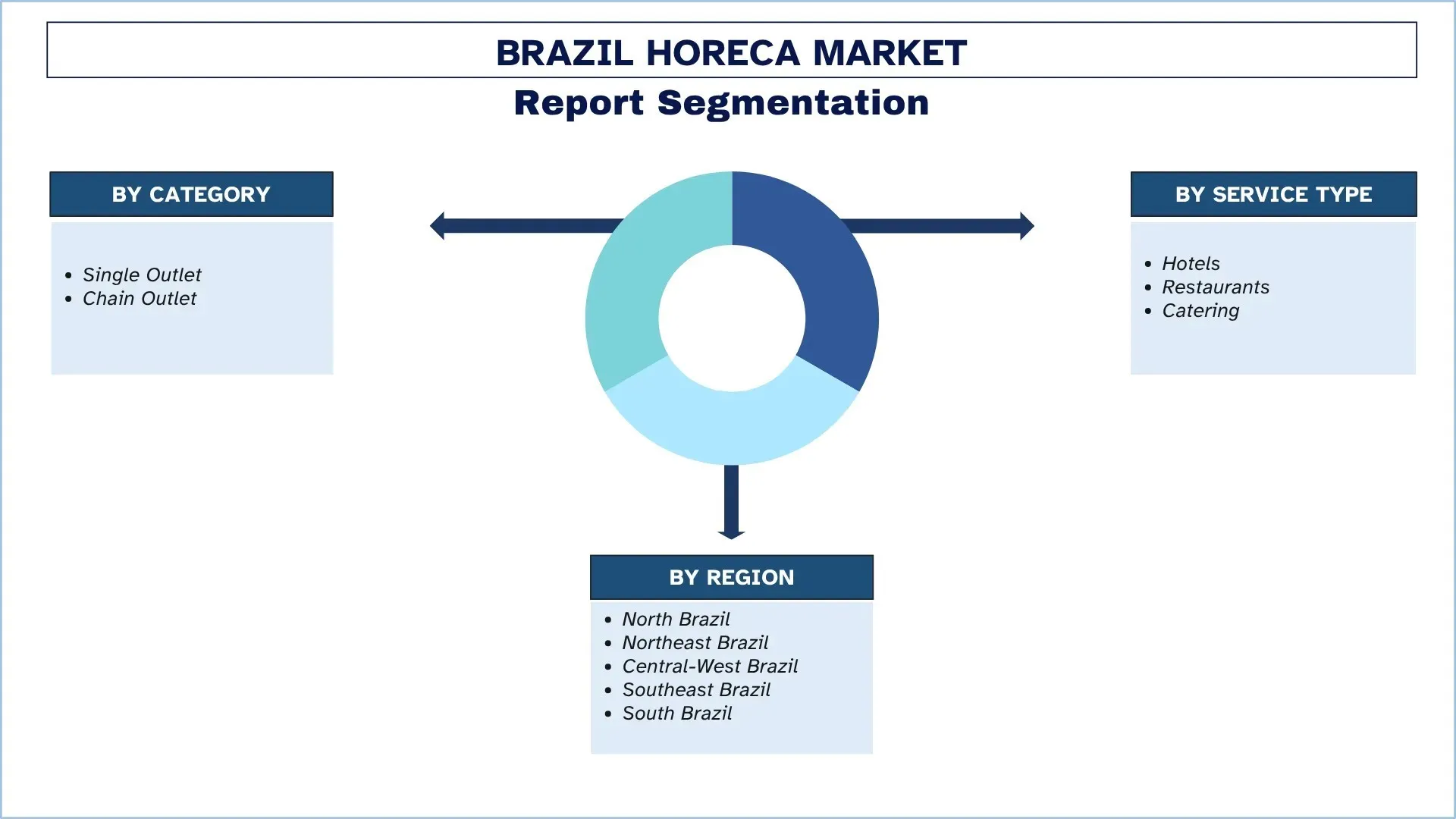
Southeast Brazil is expected to grow at a considerable rate during the forecast period.
The Southeast Brazil HoReCa market comprises the major economic centers, such as São Paulo, Rio de Janeiro, and Belo Horizonte, and is rapidly growing through urbanization, growing income levels, and thriving tourism. Due to the area and its active food culture, as well as high international presence, restaurants, boutique hotels, and cloud kitchens are proliferating. The switch to the premium food experience, healthy diets, and using technology to deliver services is quite clear. Operators are exploring automated ordering systems, environmentally friendly packaging, and smart kitchen devices to enhance efficiency and better serve customers. The interest in the objectives related to ESG also shows higher rates existing in the area, like reducing food wastage and energy-efficient infrastructure. The clock currently strikes Southeast Brazil as one of the hotspots of HoReCa innovation, with the local producers, food delivery services, and hospitality startups growing stronger partnerships. Companies that are interested in sustainability, digitalization, and local services are most likely to take advantage of the changing consumer demand and the duration of this market.
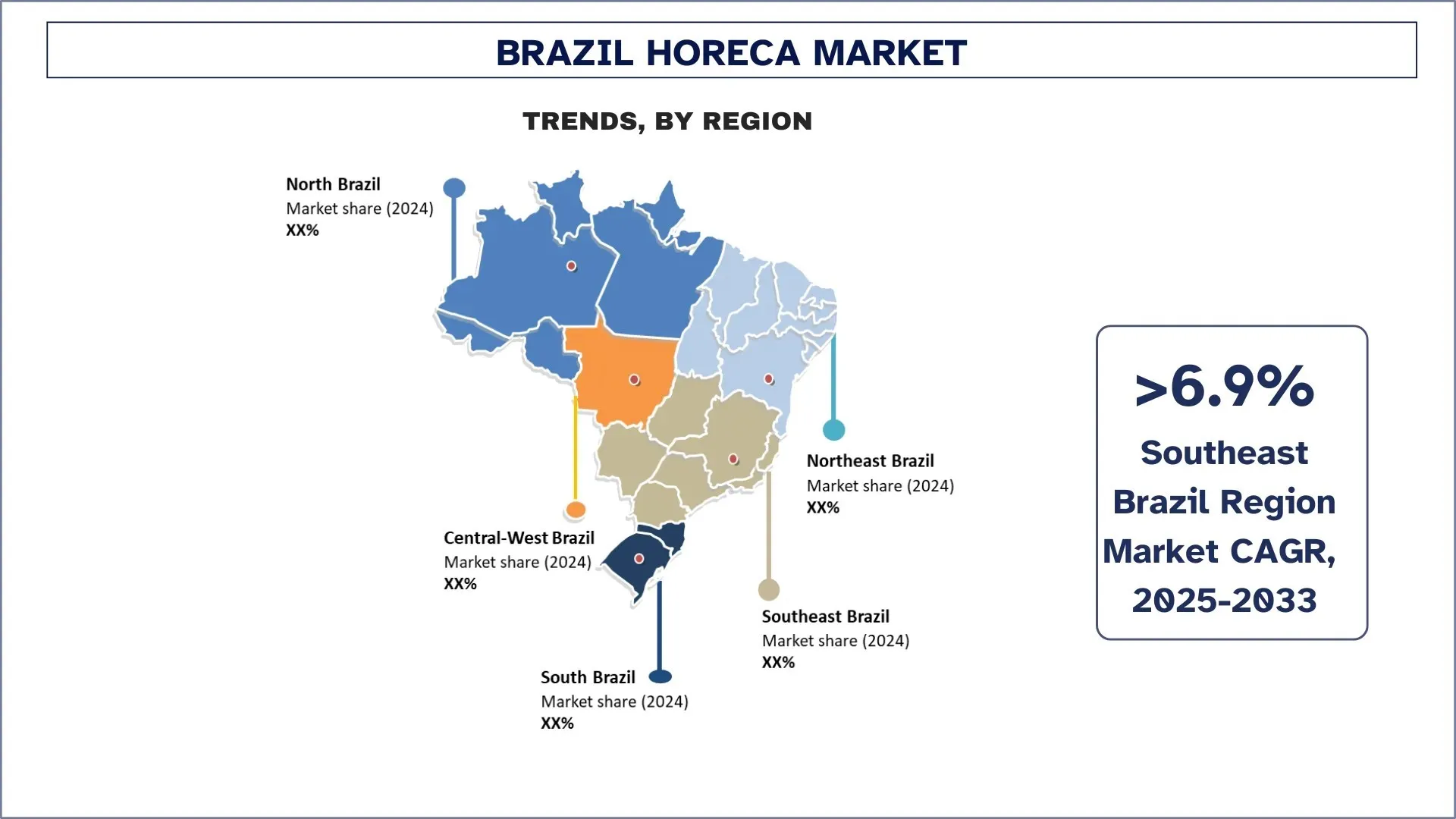
Brazil HoReCa Industry Competitive Landscape:
The Brazil HoReCa market is competitive, with several global and international market players. The key players are adopting different growth strategies to enhance their market presence, such as partnerships, agreements, collaborations, new product launches, geographical expansions, and mergers and acquisitions.
Top Brazil HoReCa Companies
Some of the major players in the market are Sapore, Sodexo, Grupo Risotolândia, DOMINO’S PIZZA BRASIL, Pizza Hut, LLC., Atlantica Hospitality International, International Meal Company Alimentação S.A., Apetece, CIS Brasil, and Ameris Hotéis.
Brazil HoReCa Market Report Coverage
Report Attribute | Details |
Base year | 2024 |
Forecast period | 2025-2033 |
Growth momentum | Accelerate at a CAGR of 6.6% |
Market size 2024 | USD 125 Billion |
Regional analysis | North Brazil, Northeast Brazil, Central-West Brazil, Southeast Brazil, and South Brazil |
Major contributing region | Southeast Brazil is expected to dominate the market during the forecast period. |
Companies profiled | Sapore, Sodexo, Grupo Risotolândia, DOMINO’S PIZZA BRASIL, Pizza Hut, LLC., Atlantica Hospitality International, International Meal Company Alimentação S.A., Apetece, CIS Brasil, and Ameris Hotéis. |
Report Scope | Market Trends, Drivers, and Restraints; Revenue Estimation and Forecast; Segmentation Analysis; Demand and Supply Side Analysis; Competitive Landscape; Company Profiling |
Segments Covered | By Category, By Service Type, By Region |
Reasons to Buy the Brazil HoReCa Market Report:
The study includes market sizing and forecasting analysis confirmed by authenticated key industry experts.
The report briefly reviews overall industry performance at a glance.
The report covers an in-depth analysis of prominent industry peers, primarily focusing on key business financials, type portfolios, expansion strategies, and recent developments.
Detailed examination of drivers, restraints, key trends, and opportunities prevailing in the industry.
The study comprehensively covers the market across different segments.
Deep dive regional-level analysis of the industry.
Customization Options:
The Brazil HoReCa Market can further be customized as per the requirements or any other market segment. Besides this, UnivDatos understands that you may have your own business needs; hence, feel free to contact us to get a report that completely suits your requirements.
Table of Content
Research Methodology for the Brazil HoReCa Market Analysis (2023-2033)
We analyzed the historical market, estimated the current market, and forecasted the future market of the Brazil HoReCa market to assess its application in major regions. We conducted exhaustive secondary research to gather historical market data and estimate the current market size. To validate these insights, we carefully reviewed numerous findings and assumptions. Additionally, we conducted in-depth primary interviews with industry experts across the HoReCa value chain. After validating market figures through these interviews, we used both top-down and bottom-up approaches to forecast the overall market size. We then employed market breakdown and data triangulation methods to estimate and analyze the market size of industry segments and sub-segments.
Market Engineering
We employed the data triangulation technique to finalize the overall market estimation and derive precise statistical numbers for each segment and sub-segment of the Brazil HoReCa market. We split the data into several segments and sub-segments by analyzing various parameters and trends, By Category, By Service Type, and by regions within the Brazil HoReCa market.
The Main Objective of the Brazil HoReCa Market Study
The study identifies current and future trends in the Brazil HoReCa market, providing strategic insights for investors. It highlights regional market attractiveness, enabling industry participants to tap into untapped markets and gain a first-mover advantage. Other quantitative goals of the studies include:
Market Size Analysis: Assess the current forecast and market size of the Brazil HoReCa market and its segments in terms of value (USD).
Brazil HoReCa Market Segmentation: Segments in the study include areas By Category, By Service Type, and By
Regulatory Framework & Value Chain Analysis: Examine the regulatory framework, value chain, customer behavior, and competitive landscape of the Brazil HoReCa industry.
Regional Analysis: Conduct a detailed regional analysis for key areas such as North Brazil, Northeast Brazil, Central-West Brazil, Southeast Brazil, and South Brazil.
Company Profiles & Growth Strategies: Company profiles of the Brazil HoReCa market and the growth strategies adopted by the market players to sustain the fast-growing market.
Frequently Asked Questions FAQs
Q1: What is the Brazil HoReCa market’s current market size and growth potential?
The Brazil HoReCa Market was valued at 125 billion in 2024 and is expected to grow at a CAGR of 6.6% during the forecast period (2025-2033).
Q2: Which segment has the largest share of the Brazil HoReCa market by Category?
Single outlets, due to their sheer numbers, have held a sizeable market share in the Brazilian HoReCa market. These single outlets offer flexibility in operations, ease of handling, and easy customization, as well as the ability to offer services and menus, since their operations are limited in scope.
Q3: What are the driving factors for the growth of the Brazil HoReCa market?
• Robust Investment in Digital Infrastructure: The digital transformation across Brazil is enabling more efficient service models and customer engagement in the HoReCa sector.
• Government Initiatives to Regulate Meal Voucher Fees: Policy measures aimed at streamlining meal voucher systems are increasing transparency and supporting sustainable business operations.
Q4: What are the emerging technologies and trends in the Brazil HoReCa market?
• Growth of Short-Term Rentals in Tourist Areas: Platforms offering short-stay accommodations are reshaping the hospitality landscape, especially in popular tourist regions.
• Shift Towards Sustainable and Plant-Based Offerings: Growing consumer preference for eco-friendly and health-conscious food options is driving menu innovation across hotels, restaurants, and cafés.
Q5: What are the key challenges in the Brazil HoReCa market?
• Accommodation Shortages During Major Events: High tourist influx during major events often leads to supply constraints, impacting both customer experience and service delivery.
• Rising Operational Costs and Inflationary Pressures: Increasing costs across labor, utilities, and supplies are squeezing margins and challenging profitability for HoReCa operators.
Q6: Which region dominates the Brazil HoReCa market?
- The Southeast Brazil region dominates the Brazilian HoReCa market due to the rising demand from major urban centers.
Q7: Who are the key players in the Brazil HoReCa market?
Some of the top HoReCa companies in Brazil include:
• Sapore
• Sodexo
• Grupo Risotolândia
• DOMINO’S PIZZA BRASIL
• Pizza Hut, LLC.
• Atlantica Hospitality International
• International Meal Company Alimentação S.A.
• Apetece
• CIS Brasil
• Ameris Hotéis
Q8: What are the opportunities for companies within the Brazil HoReCa market?
• Growth of Cloud Kitchens and Delivery-Only Models: The rising demand for online food delivery is creating strong growth potential for cloud kitchens, enabling operators to reduce overhead costs and reach wider customer bases.
• Capitalizing on Tourism Growth: Continued expansion in domestic and international tourism presents significant opportunities for hotels, restaurants, and cafés to attract and serve a growing number of travelers.
Q9: How are consumer preferences shaping product development in the Brazil HoReCa market?
Consumer preferences for convenience, sustainability, and healthier options are driving product development in Brazil’s HoReCa market, leading to more plant-based menus, tech-enabled services, and personalized dining experiences.
Related Reports
Customers who bought this item also bought

